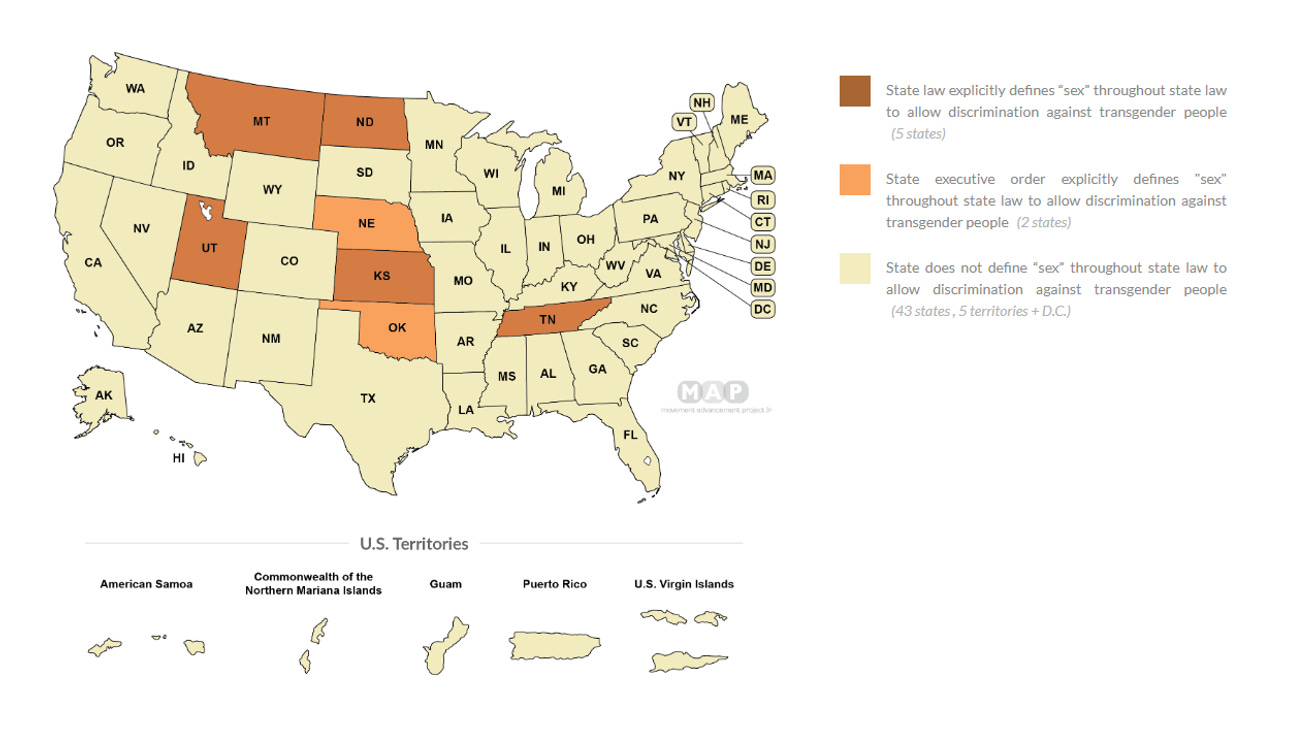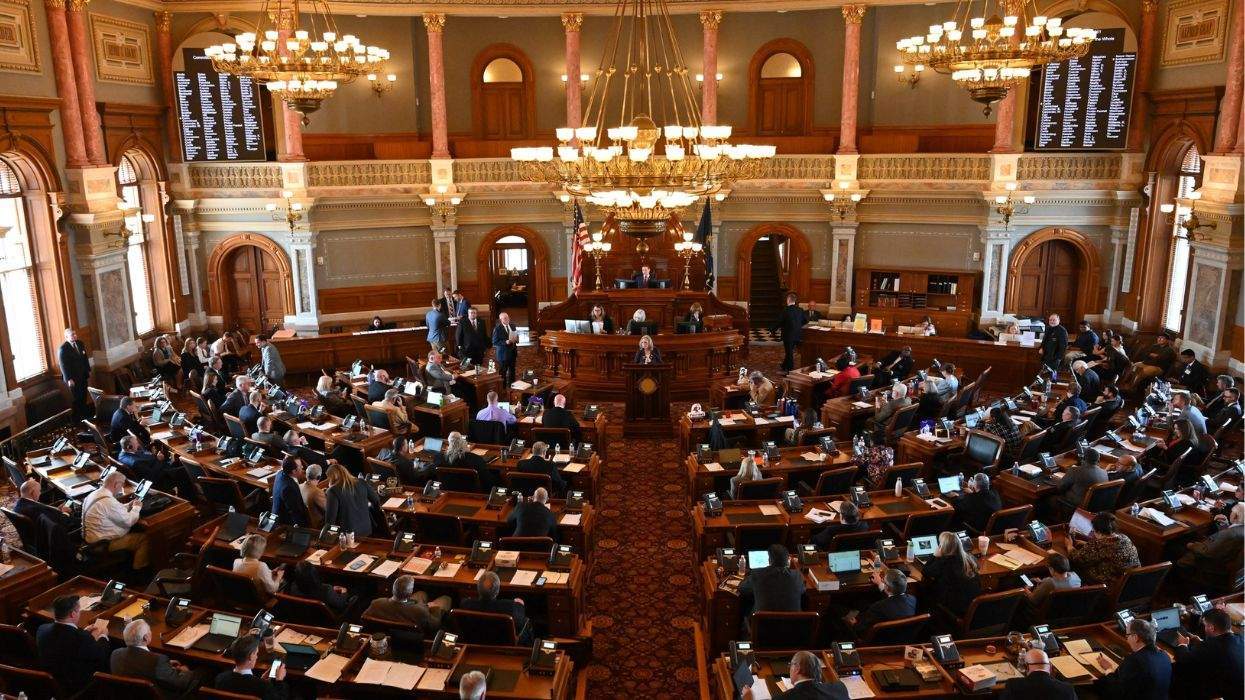The pace of anti-transgender legislation has slowed in recent weeks, with several states, known for previously targeting transgender individuals, failing to pass any such laws. However, a different dynamic is emerging across the Gulf South, where three states are advancing bills that would cease the legal recognition of transgender individuals, potentially having significant repercussions for their trans residents. Louisiana, Mississippi, and Alabama are introducing bills to define sex in a manner that excludes transgender individuals, potentially affecting birth certificates, driver's licenses, bathroom access, and more.
The bills, dubbed the "Women’s Bills of Rights" by their supporters, fall far short of actually protecting women’s rights. They fail to protect access to birth control or abortion, do not ensure equitable pay, neither allocate funds for nor promote women's athletics, and lack any provisions designed to curb violence against women. Instead, they categorize sex based on reproductive capabilities and ends legal recognition of transgender individuals' gender identities.
In Louisiana, House Bill 608 was introduced with a staggering 63 Republican co-sponsors, signaling a strong opposition to any efforts to lobby against the bill. While its primary focus seems to be on restricting bathroom access in schools, prisons, and shelters, a particular section of the bill indicates that “any provision of law enacted by the legislature or any rule adopted by a state agency or other entity subject to the Administrative Procedures Act when applicable to an individual's sex shall apply those definitions provided in R.S. 9:58.” This provision could lead to the banning of changes to birth certificates and driver's licenses, effectively ending all legal recognition for transgender individuals. The bill has not yet been scheduled for a hearing, but given the substantial support it has garnered, its progression through the legislative process is anticipated to be swift once it begins.
In Mississippi, Senate Bill 2753 and House Bill 1607 have successfully passed their respective chambers. House Bill 1607 defines sex based on reproductive capacity, and puzzlingly states that for transgender individuals, "equal" does not mean "same" or "identical." Notably, the bill does not provide a definition for "equal," a term also left undefined in similar legislation in other states. This ambiguity sparked debate over a comparable bill in Iowa, which is currently stalled in the legislature there in part because of disagreements over that line. As for Senate Bill 2753, it would ban bathroom access for transgender individuals in publicly owned facilities, such as rest stops and the Jackson airport.
In Alabama, House Bills 111 and 130 similarly target transgender individuals. House Bill 111 specifies sex based on reproductive capacity for all vital statistics purposes. Meanwhile, HB 130, although not directly defining sex, will reportedly be amended to add language that extends "Don't Say Gay" legislation to Space Camp. This addition comes after conservative media expressed outrage over a transgender individual being employed at the state's renowned Space Camp and could be used to target transgender employees in state facilities.
So far, only five states have passed similar legislation: Kansas, Montana, North Dakota, Tennessee, and Utah. In Kansas, a judge has recently ruled in favor of Attorney General Kris Kobach that drivers licenses and birth certificates must contain transgender people’s old assigned sex at birth, citing the law there. Meanwhile, although such a law does not exist in Florida, rule changes have resulted in a lack of ability for transgender people to change their drivers licenses; reportedly, Florida residents are unable to change their birth certificates as well. Additionally, Oklahoma and Nebraska have executive orders defining sex similarly.
You can see a map of states from the Movement Advancement Project with such legislation here:
 Movement Advancement Project. "Equality Maps: Defining 'Sex' to Allow Discrimination.". Accessed 3/18/2024.
Movement Advancement Project. "Equality Maps: Defining 'Sex' to Allow Discrimination.". Accessed 3/18/2024.Should these bills become law, an increasing number of states will not legally recognize transgender individuals. The implications of such legislation are profound: individuals who have long since updated their identity documents may face the reversion of those documents back to their assigned sex at birth. These state-issued identification documents could then be employed to enforce additional anti-transgender laws, including bathroom bans. Moreover, these restrictions are bound to create complications for transgender individuals who have legally updated their federal documents to align with their gender identity, as these documents would conflict with their state-issued ones.
There have been calls for a federal legal response to bills that outlaw gender markers and refuse legal recognition to transgender people. For instance, in Florida, the entire Democratic congressional delegation asked the Biden Administration to use the Real ID act, which mandates “gender” be listed on drivers licenses. There has been no response to that request as of Monday.
Multiple lawsuits are underway trying to reverse the laws in court where they have passed, but the legal outcomes are currently pending.
This originally appeared on Erin in the Morning.
















Charlie Kirk DID say stoning gay people was the 'perfect law' — and these other heinous quotes
These are some of his worst comments about LGBTQ+ people made by Charlie Kirk.